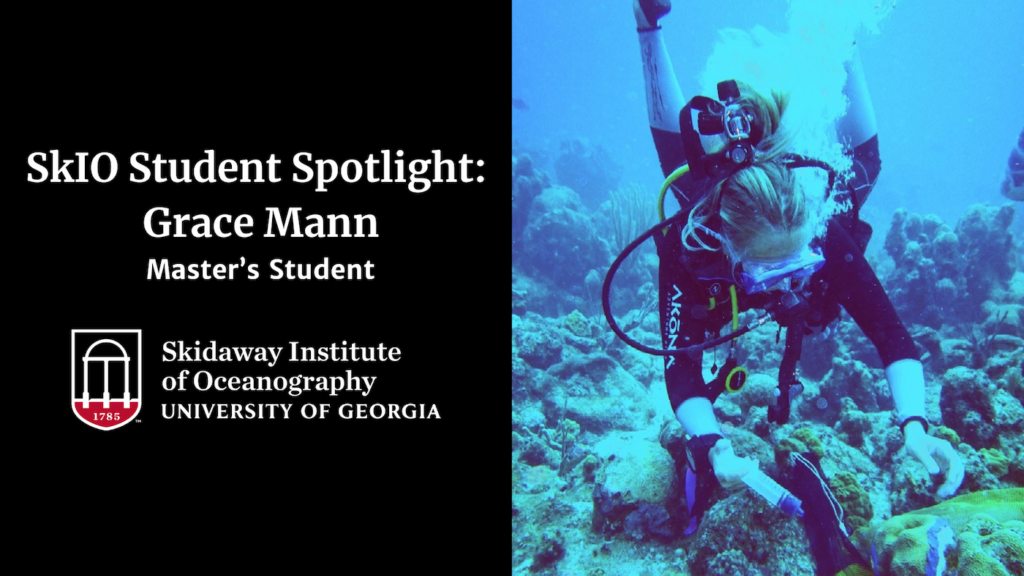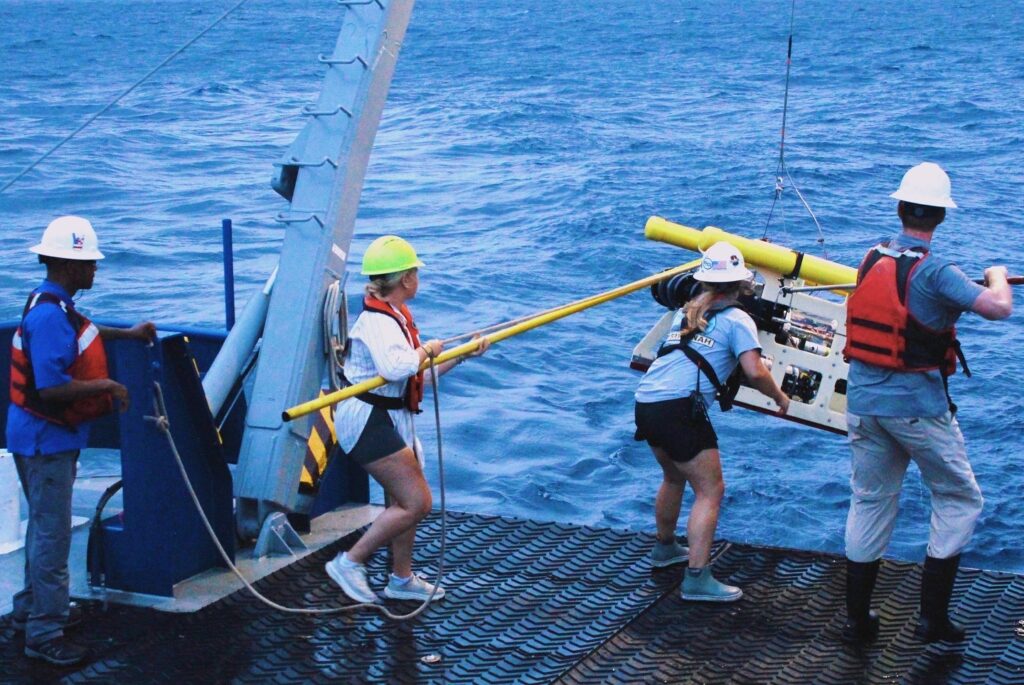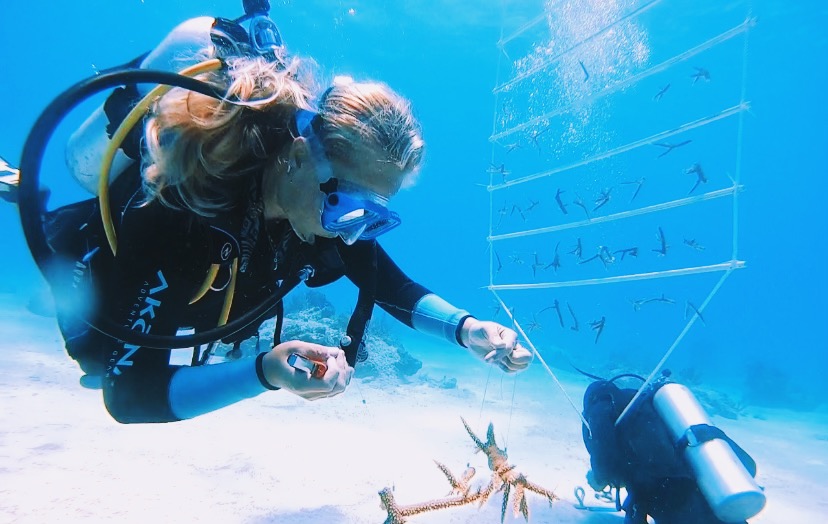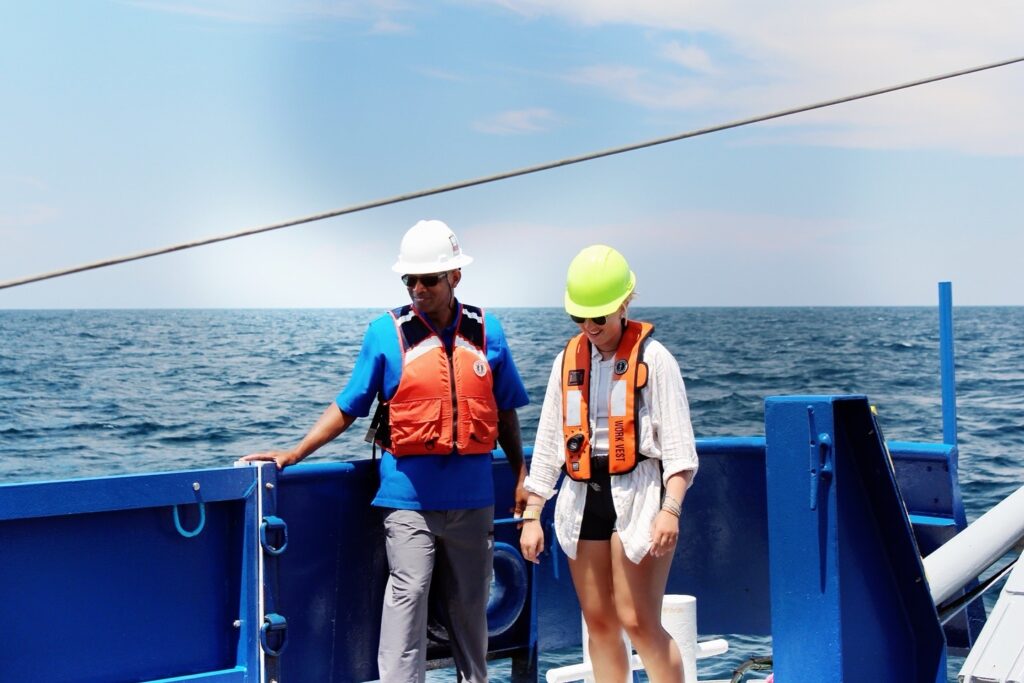
Grace Mann, a native of the Turks and Caicos Islands, is a master’s student working as a research assistant with SkIO faculty member Adam Greer in the Zero-C Lab at the University of Georgia Skidaway Institute of Oceanography (SkIO). In 2023, Mann received her bachelor’s degree from Jacksonville University, where she studied marine biology and was a varsity athlete on the sailing team.
SkIO: What are you researching, and who are you working with?
Grace Mann (GM): I am working with Adam Greer as a part of the Zero-C Lab group and am studying how upwelling intrusions drive Colonial Radiolarian aggregations and their associated zooplankton dynamics. To do this, I am utilizing multiple imaging systems paired with oceanographic sensors, and hope to reveal where and when these aggregations form and how dense they are, as well as speculate how they affect the ecosystem dynamics on the shelf.
SkIO: What inspired your track of study?
GM: I grew up on an island, so the ocean was always a part of daily life. I fell in love with the ocean, and was so inspired by how it enabled everyone’s lives. A large majority of my friends’ parents (as well as my own) relied on the ocean and our ecosystem for our livelihood in various aspects of the tourism industry. I got inspired to go into marine science and seriously started thinking about it as a career once I got a little bit older and noticed things were going wrong. I wanted to do something about it. It became cemented in my mind that this was what I was going to do during the summer of 2021 when I worked at a nonprofit back home on coral disease and saw how bad it had really gotten.

SkIO: Why did you choose UGA/SkIO?
GM: I chose Skidaway and UGA for many reasons, the first being that I wanted to diversify my resume. I am lucky to have already had a lot of field experience, but wanted to get a better grasp on more technical skills, like lab-work, data analysis and coding. The second reason is the location. Savannah is a beautiful city, and I wanted to stay on the East Coast to still be accessible to family.
SkIO: Where do you see yourself in 5-10 years?
GM: I see myself at either a nonprofit or government agency of some kind working in the field and closely with policy. I am passionate about what I do and have a varied skill set. I could honestly see myself doing so many different things and thriving. I am just excited to see what the future holds.

SkIO: What do you do for fun, outside of your work/studies?
GM: Outside of work or studying, I am still sailing, traveling and racing as much as I can, and have become a part of the amazing sailing community here in Savannah. I also like to read, cook, workout and explore the city with friends. There is so much to do in Savannah.
SkIO: What advice would you give a high school or undergraduate student interested in a similar track? How can they get to where you are?
GM: Be open to new experiences, diversify your resume and try everything. We are in such a diverse field. There are probably hundreds of different things you could specialize in. So if you have the opportunity, try as many of them as you can until you find the one you love, or at least can have fun with. I got into marine science wanting to work with sharks, did my undergrad internship on coral disease, and now here I am studying zooplankton for my master’s. No single path is right. You can also love things other than your research and marine science. Be a well-rounded person with other jobs, interests and hobbies that will make you stand out and highlight all of your skills.

About SkIO
The UGA Skidaway Institute of Oceanography (SkIO) is a multidisciplinary research and education institution located on Skidaway Island near Savannah, Georgia. The Institute was founded in 1967 with a mission to conduct research in all fields of oceanography. In 2013, SkIO was merged with the University of Georgia. The campus serves as a gateway to coastal and marine environments for programs throughout the University System. The Institute’s primary goals are to further the understanding of marine and environmental processes, conduct leading-edge research on coastal and marine systems, and train tomorrow’s scientists. For more information, visit www.skio.uga.edu.


